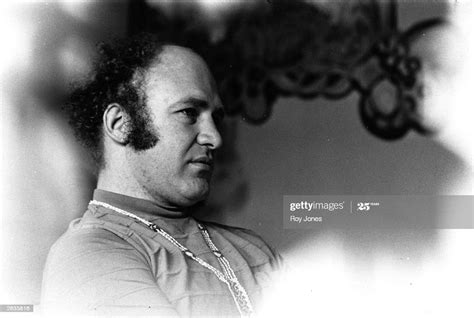A Quote by Paul Dirac
I found the best ideas usually came, not when one was actively striving for them, but when one was in a more relaxed state… I used to take long solitary walks on Sundays, during which I tended to review the current situation in a leisurely way. Such occasions often proved fruitful, even though (or perhaps, because) the primary purpose of the walk was relaxation and not research.
Related Quotes
When I was a child, my father used to take me for walks, often along a river or by the sea. We would pass people fishing, perhaps reeling in their lines with struggling fish hooked at the end of them. Once I saw a man take a small fish out of a bucket and impale it, still wriggling, on an empty hook to use as bait.
Very often, or perhaps more often, and even in very good collections - even in some of the best collections ever written, I would argue - it's because our "voicier" writers hew so closely to one given set of dictional tics that we as readers can't read the books all the way through in a single sitting, because if we did, the stories and their narrators would all start to bleed together.
Build pockets of stillness into your life. Meditate. Go for walks. Ride your bike going nowhere in particular. There is a creative purpose to daydreaming, even to boredom. The best ideas come to us when we stop actively trying to coax the muse into manifesting and let the fragments of experience float around our unconscious mind in order to click into new combinations. Without this essential stage of unconscious processing, the entire flow of the creative process is broken.
Everyone is looking for a purpose in life. The reason we all go to the cinema, or online, is because we haven't found a purpose yet. We are always wondering why we're here. But I've learned that we have to create that purpose for ourselves. My purpose, which I finally found thanks to social media, is helping all of these people find their purpose.
Cat-Ideas and Mouse-Ideas. We can never get rid of mouse-ideas completely, they keep turning up again and again, and nibble, nibble-no matter how often we drive them off. The best way to keep them down is to have a few good strong cat-ideas which will embrace them and ensure their not reappearing till they do so in another shape.
The facts of nature are what they are, but we can only view them through the spectacles of our mind. Our mind works largely by metaphor and comparison, not always (or often) by relentless logic. When we are caught in conceptual traps, the best exit is often a change in metaphor not because the new guideline will be truer to nature (for neither the old nor the new metaphor lies "out there" in the woods), but because we need a shift to more fruitful perspectives, and metaphor is often the best agent of conceptual transition.
Though it is only in a very imperfect state of the world's arrangements that anyone can best serve the happiness of others by the absolute sacrifice of his own, yet, so long as the world is in that imperfect state, I fully acknowledge that the readiness to make such a sacrifice is the highest virtue which can be found in man.
Many flagship state universities have wonderful digital libraries that are accessed by people around the world. In future, if not current, budget crises, trustees, board members, and administrators may wonder why these state institutions - with an articulated primary clientele of students, faculty, and staff members and a secondary clientele of all citizens of the state - should be spending resources on a digital library that is used by many people beyond the primary and secondary service populations.



































